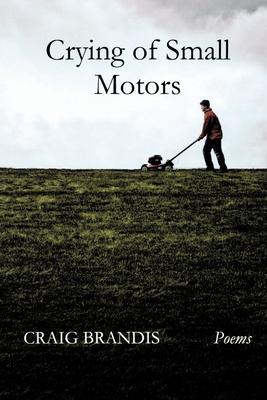Through portraits of working class life and meditations on strange, even comedic aspects of personal tragedy, Crying of Small Motors follows the poet's search for a poetics of devotional wildness, for language that balances sorrow, absurdity and optimism. Brandis's voice is lyric, narrative and spare. His poems are acts of restless defamiliarization: a voracious sea lion he encountered while rowing is like a familial unkindness carried to the grave; a wounded veteran is like a fermata in a wheelchair. He approaches his large subjects by way of small gestures. As reviewer John Wall Barger wrote, "we trust the poet and follow him into increasingly strange, Transtrmer-like spaces: above the small print / grasses, a horse's / double field / of vision folds / the country / lengthwise." The arc of the book follows the poet's struggle to fashion something useful, like a new utensil, from the grief and tragic beauty found in lifes' difficult places.

Through portraits of working class life and meditations on strange, even comedic aspects of personal tragedy, Crying of Small Motors follows the poet's search for a poetics of devotional wildness, for language that balances sorrow, absurdity and optimism. Brandis's voice is lyric, narrative and spare. His poems are acts of restless defamiliarization: a voracious sea lion he encountered while rowing is like a familial unkindness carried to the grave; a wounded veteran is like a fermata in a wheelchair. He approaches his large subjects by way of small gestures. As reviewer John Wall Barger wrote, "we trust the poet and follow him into increasingly strange, Transtrmer-like spaces: above the small print / grasses, a horse's / double field / of vision folds / the country / lengthwise." The arc of the book follows the poet's struggle to fashion something useful, like a new utensil, from the grief and tragic beauty found in lifes' difficult places.